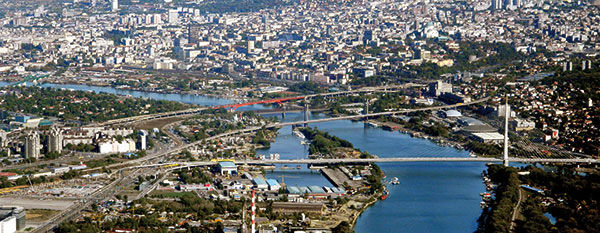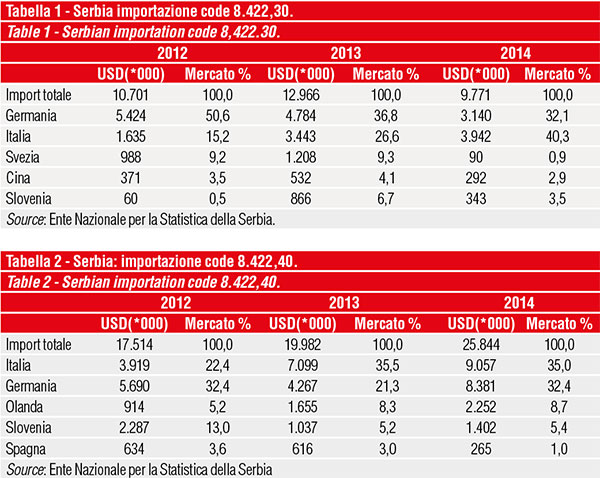Markets to explore: Serbia
The column dedicated to Italian companies operating in the packaging with a keen eye to the possibilities of growth and development abroad Born out of the collaboration between ICE-Agenzia and Edizioni Dativo. The network of ICE offices abroad will provide a regular update on the development of the packaging in the short/medium term in selected countries.

Agriculture and the food industry are driving sectors in Serbia’s economy, and they have yet to implement major investments in packaging, instead prioritizing production systems and equipment, to the detriment of packaging operations, not to mention research into packaging and presentation solutions. However, pressure from the market and consumers has led to a gradual change of this trend.
Nearly all raw materials for packaging are imported, and local manufacturers of packaging and converting machinery and equipment mostly produce manual or semi-automatic systems (while more sophisticated equipment is imported as a rule).

Packaging machine imports
The sector follows the general trend of the Serbian economy, marked by few direct investments (especially foreign direct investments - FDIs), a climate of uncertainty (partly due to issues arising from an unfinished process of privatization of some major state owned enterprises), the postponement of some investments until finalization of managing the IPARD funds regarding public expenditure capacity. These phenomena are compensated for by GDP growth between 1 and 1.5% in 2015.
The Serbian food processing industry, which is characterized by diversified production and numerous types of enterprise, accounts for 90% of demand for packaging and converting machinery; the remaining 10% goes to the non-food sector (detergents, cement, etc.).
Countries of origin. Italy ranks among major exporters of packaging machinery and equipment in Serbia, reflecting its status as the country’s main trade partner: trade with Italy accounts for 13.7% of Serbia’s total trade, and Italy has been its top export partner for years, ranking third behind Germany and Russia for imports to the country.
Italian equipment is appreciated for offering innovative solutions at relatively accessible prices. Its main competitor, Germany, also has a reputation for quality but costly equipment. Small to medium manufacturers, with their limited budgets, prefer Chinese instruments and equipment.
However, while Italy and Germany are traditional trade partners with a consistent market presence, the position of other countries can vary drastically from year to year.
Import statistics and Italy’s position. Serbia uses the Harmonized Customs Tariff. The most common tariff item numbers for packaging machinery are:
1) 8422.30 - Machinery for filling, closing, sealing, or labeling bottles, cans, boxes, bags or other containers; machinery for capsuling bottles, jars, tubes and similar containers;
2) 8422.40 - Other packing or wrapping machinery (including heat-shrink wrapping machinery).
Exports of machinery listed under tariff item number 8422.30 went up in 2014, as well as Italy’s market share, which went from 26.6% to 40.3%, confirming Italy’s place as the sector’s main partner.
As for machinery listed under 8422.40, Italy’s performance remained stable at 2013 levels, with a market share of 35%.
Customs duties and non-tariff obstacles. As of January 1st, 2014, the Stabilisation and Association Agreement between the EU and Serbia eliminates customs duties for machinery and equipment originating in the EU. Nonetheless, as an EU candidate country, Serbia has still not harmonized its quality and safety standards for machinery and facilities with EU regulations and standards.
Conclusion
With additional appropriations for agriculture expected, as well as increased production and export of food products (fresh and processed), and projected GDP growth of 2% in 2016, Serbia offers a concrete prospect of increased demand for packaging machinery.
NOTE The project is coordinated ICE-Agenzia headquarters in Rome, by the Industrial Technology-, Energy-, and Environment Office headed by Ferdinando Pastore. Contacts: Matteo Masini, tel 06.5992.9356 [email protected]

















